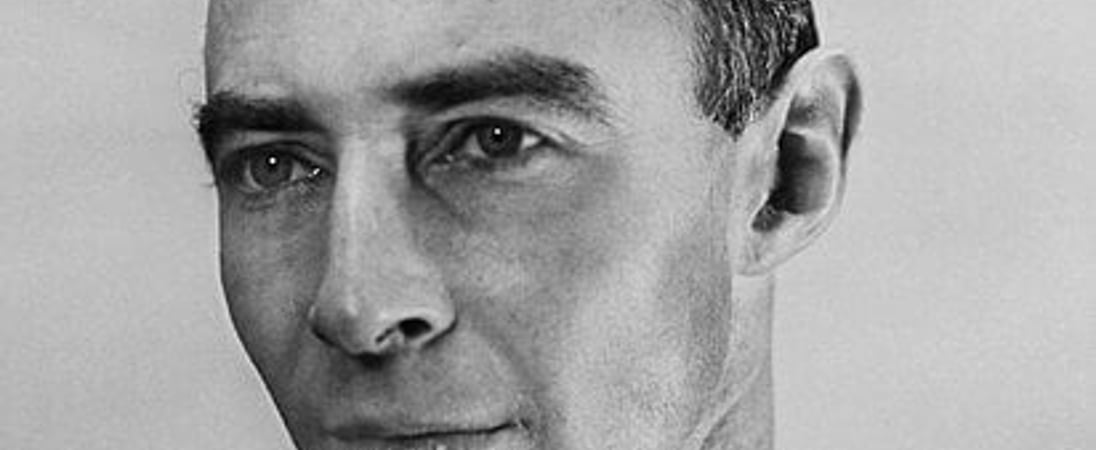
J. Robert Oppenheimer's birthday
J. Robert Oppenheimer, born on April 22, 1904, was a remarkable scientist who changed history. Known as the “father of the atomic bomb,” his work led to a world-changing invention during World War II.
Oppenheimer’s life was filled with both achievements and challenges, making him a fascinating figure in science and history. His story captivates many, showing how one person’s knowledge can greatly impact the world.
J. Robert Oppenheimer’s Early Years
J. Robert Oppenheimer had an interesting start to life in New York City. Born to a wealthy family, he grew up in an environment rich in culture and learning.
From a young age, his love for knowledge stood out. He read extensively, showing a deep interest in science and philosophy. Even as a child, his intelligence was clear to everyone around him.
His education began at the Ethical Culture School, which nurtured his curious mind. Here, Oppenheimer’s passion for science grew stronger. Teachers noticed his sharp intellect and encouraged him. At just 12 years old, he started studying chemistry, an early sign of his future in science.
For college, Oppenheimer headed to Harvard. He arrived a year late due to illness but quickly caught up.
At Harvard, his love for science turned into a serious pursuit. He studied chemistry, but his interest in physics blossomed.
This led him to further studies in Europe, where he met some of the greatest scientific minds of the time. These experiences shaped him into the brilliant scientist he later became.
Triumphs of J. Robert Oppenheimer
Significant achievements, both in science and beyond marked J. Robert Oppenheimer’s life. His most notable success came during World War II with the Manhattan Project.
As its lead scientist, Oppenheimer played a key role in developing the atomic bomb. This invention dramatically changed the course of the war and history itself. His leadership and scientific skills were crucial to the project’s success.
Beyond the Manhattan Project, Oppenheimer made valuable contributions to theoretical physics. He explored topics like quantum mechanics and black holes, advancing our understanding of the universe. His work earned him a reputation as a top physicist of his time.
In the realm of education, Oppenheimer’s impact was also profound. He served as the Director of the Institute for Advanced Study in Princeton.
Here, he worked with other brilliant minds, including Albert Einstein. His leadership helped make the institute a world-renowned center for scientific research.
Despite his scientific achievements, Oppenheimer’s life wasn’t without controversy. His political views and connections brought him under scrutiny during the Red Scare. This period was challenging, yet he remained influential in science and politics.
On a personal front, Oppenheimer was known for his love of art and literature. He balanced his scientific pursuits with a rich cultural life. This blend of science and art made him a unique and fascinating individual.
Interesting Facts About J. Robert Oppenheimer
Multilingual Abilities: Oppenheimer was fluent in eight languages, including French, German, and Sanskrit.
Early Admission to College: He was accepted to Harvard at just 17, showing his early academic excellence.
Interest in Eastern Philosophy: He had a deep interest in Eastern philosophy, especially Hinduism, and often quoted the Bhagavad Gita.
Mountaineering Enthusiast: He loved mountaineering and often went on climbing expeditions in the United States and Europe.
A Brush with Death: As a young man, he once ingested a chemical in a laboratory accident, narrowly escaping serious harm.
Award Recognition: In 1947, he was awarded the Presidential Medal for Merit, one of the highest civilian honors in the United States.
Passion for Teaching: Oppenheimer was passionate about teaching and mentoring young scientists, influencing a new generation of physicists.
Also on this date...
National Baseball Day
America's pastime, where a small, round ball sparks exhilarating moments, connecting generations through the love of sport.
National Jelly Bean Day
Put together a colorful bag of your favorite flavors, or be brave and take the risk of vomit and bogey-flavored beans in Bertie Bott’s Every Flavor Beans.
National Beagle Day
Floppy ears and soulful eyes, the beagle is man’s best friend, and a valuable hunting dog. Pamper your beagle, or join in an event like the Beagle Walk.




